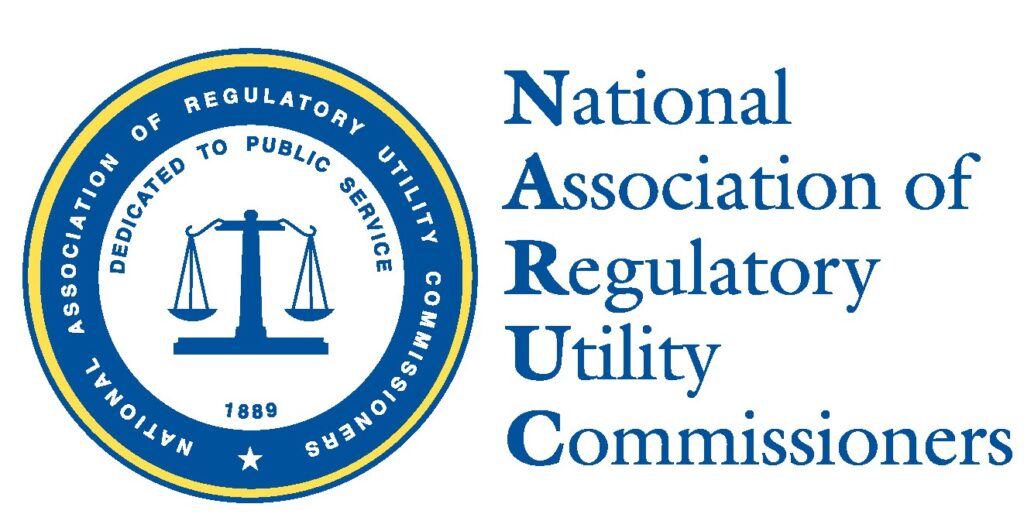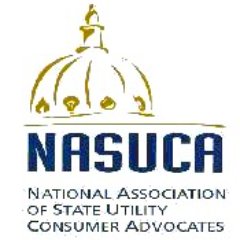All around the country, consumers are up in arms over skyrocketing utility bills.
Last month, the Baltimore City Council held a hearing about it.
“I feel like I’m being held hostage,” said Baltimore resident Zattura Sims-El.
Sims-El saw a nearly $400 Baltimore Gas and Electric (BGE) bill in December more than double to up to $1,000 in February.
Customers told their stories about having to choose between paying a utility bill or paying for prescription drugs or paying for food.
Last week, Politico ran a headline about rates in New Jersey – Democrats Freaking Out Over Power Prices.
Utility regulators are supposed to be looking after you and me – utility consumers.
But often, they get too cozy with the utility companies they are supposed to regulate.
How cozy?
Well, let’s take a look at the National Association of Regulatory Utility Commissioners (NARUC) Annual Winter Policy Summit that took place in Washington, D.C. last month.
It was sponsored by a whole host of regulated companies and industry groups, including at the Leadership Level – the Edison Electric Institute, America’s Electric Cooperatives (NRECA), and Amazon Web Services (AWS).
At the Premiere Level – the Nuclear Energy Institute, at the Executive Level – Microsoft, at the Platinum Level – Google and the American Gas Association – among many others, on down the list.
“NARUC should not accept sponsorships or funding from regulated utilities and their trade associations,” said David Pomerantz of the Energy and Policy Institute.
“At a time when Americans are experiencing soaring electric and gas bills, their only line of defense is vigilant utility regulators. Having the utilities and their trade associations fund NARUC undermines confidence in regulators’ ability to vigilantly hold these companies in check and accountable to their customers.”
Now let’s take a look at the National Association of State Utility Consumer Advocates (NASUCA).
NASUCA is an association of 61 consumer advocates in 45 states and the District of Columbia Barbados, Puerto Rico, and Jamaica. NASUCA’s members are designated by the laws of their respective jurisdictions to represent the interests of utility consumers before state and federal regulators and in the courts.
State utility consumer advocates were created to give consumers a voice before the utility regulators who were seen as – and are in reality – too cozy with the utility companies.
But lo and behold, the consumer advocates too are taking funding from some of the same companies and trade groups that fund the regulators at NARUC.
NASUCA’s annual meeting last November in Anaheim, California was funded by the same cast of characters – Edison Electric Institute, Google, and the American Gas Association to name three.
One of the more active utility consumer advocates, Maryland People’s Counsel David Lapp, has been publicly outspoken against utility rate increases, focusing in Maryland on Baltimore Gas & Electric (BGE).
Lapp says that BGE rates have more than tripled since 2010, increasing from 26 cents/therm to 85 cents/therm in 2024, exceeding the rate of inflation by a factor of nearly three. BGE rates will rise to 94 cents/therm in 2026.
Columbia Gas rates increased at about 3.5 times the rate of inflation, increasing from 30 cents/therm in 2010 to $1.00/therm in 2024. Contrast that to Washington Gas rates which increased only at about the rate of inflation, from 32 cents/therm in 2010 to 46 cents/therm in 2024.
Like Pomerantz, Lapp is critical of corporate funding of the key players in the regulation of energy rates.
“Utilities are monopolies with customers who are captive to their services and to the costs that regulators approve,” Lapp said. “Unlike competitive businesses, they don’t have to compete on price or service. Rather, they understand that they can generate more profits by persuading regulators, policymakers, and even advocates to support agendas that further their bottom line interests in extracting more profits from customers. Sponsoring conferences and other events gives them access to decision makers and potential influence over the topics covered and who gets to speak.”
The press offices of NARUC AND NASUCA didn’t not return calls seeking comment.

